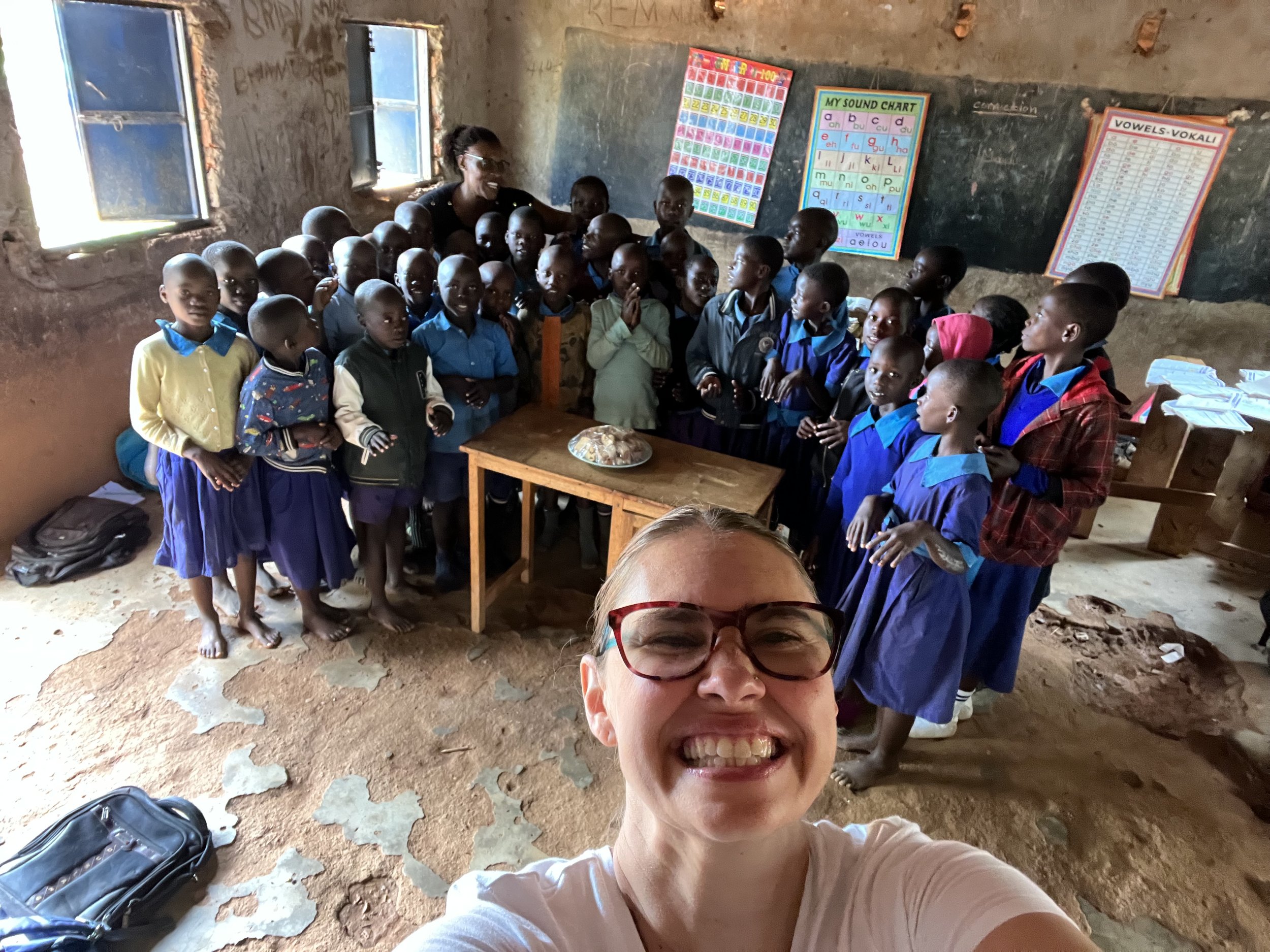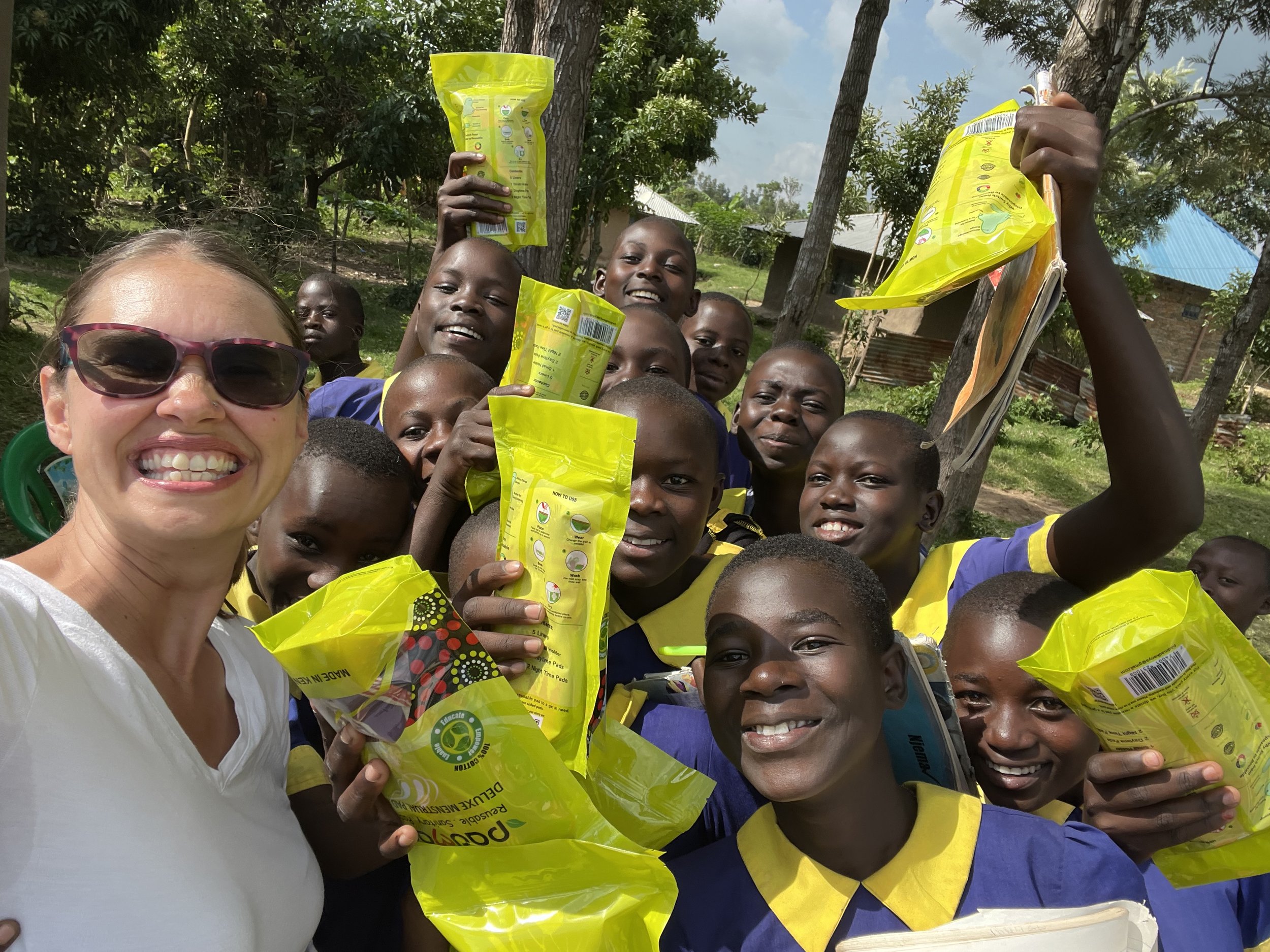Study Abroad with COCE Kenya: Wendy Thornell’s Experience
In June, we hosted our first group of study-abroad students from the University of Texas at Arlington (UTA) to give them an opportunity to observe how community members use the strengths and resources within our community to overcome the significant needs students and families face. This week, we’ll learn more about Wendy Thornell’s experiences.
Wendy Thornell (Center) holding the camera to take a photo with the teacher and students she assisted in a classroom.
Wendy, a UTA study-abroad student pursuing a Master of Social Work, shared that COCE’s partnership with UTA provided study-abroad students like her with more chances to engage with community members at all levels. She found it amazing that she and other study-abroad students were able to talk with community elders, elected officials, and citizens about menstrual health and other important topics. Wendy reflected, “We take it for granted that men are supportive in the United States, my husband and even my son at 16 will buy pads and support met during those times. To go into a culture where it’s not as acceptable to buy pads or for girls to choose buying food over menstrual hygiene products was unfathomable.” One of the reasons PadMad provided education to young men and young women was to confront stigma like Wendy witnessed and normalize menstrual hygiene education. Wendy noted that during the menstrual education sessions, having Dr. Small there was instrumental in bridging gaps created by language barriers while encouraging the study-abroad students to share their experiences with students in Busia County to strengthen the connection between the groups.
Wendy (left) surrounded by students in purple uniforms with yellow collars who are holding bright green reusable pad kit packages.
When asked about our Sijowa Library Project, Wendy reported that the students and teachers were excited about the library because of the books it will provide. When assisting teachers in classes, Wendy witnessed students having to share textbooks for schoolwork because of the lack of educational resources. In the classroom, each table would seat 4 or 5 students who would share one book. Due to this scarcity, Wendy said that the teachers and students treat books preciously. Wendy’s experience is an example of how, despite lacking adequate educational resources, teachers in Busia County schools work to support many students with very little and, her experiences with other community members shows that people are engaged and care deeply about improving conditions within their community. Through our initiatives of sponsoring students and building a community library, we will continue to increase the educational resources in Busia County so that teachers in the community may enhance the educational experiences for their students. Our goal is to create more equitable and quality education for all Kenyan youth in this area.
If you’d like to learn more about our library and how to contribute to its development, check out the following link: https://www.globalgiving.org/projects/communitylibrary/.



